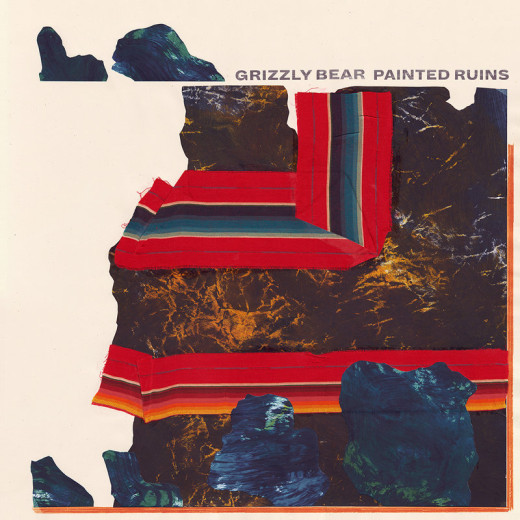Grizzly Bear are a band of individuals and this has never been as true as it is on their latest record Painted Ruins. In the five years since Shields, the once Brooklyn-based band have scattered across the east and west coasts slowly reconvening to create new music. These years have perhaps been the most formative in the band’s tenure as vocalist Ed Droste describes, “life happened”. Marriage, kids, divorce and everything in between has transformed the four indie rockers into adults, each unique in their experience of the world. And it’s with this experience that the band approach Painted Ruins. To say that Grizzly Bear have matured would be misleading as they’ve always been a mature outfit, their music emotionally tense and dour. Whats striking however is its brevity: The songs are no longer teased out but are delivered concisely and effortlessly. The lilting tones of ‘Wasted Acres’ make no qualms about paving the way for the driving rhythms of ‘Mourning Sound’ and there’s scarcely a moment not used to its full potential. Virtually every song on this album feels like it could be a single and this serves to make what is arguably Grizzly Bear’s most consistent album to date.
Chris Bear’s drums are often the point of focus. Over the course of the album, a cacophony of beats torrent the ears in a way that’s always interesting and never abrasive. From the military snare on ‘Four Cypresses’ to the syncopated flurry of ‘Aquarian’ there’s always some percussive element giving each of the album’s eleven songs a unique character. Chris Taylor’s bass lines and synth soundscapes act as the glue holding Bear’s maddening drums together, making sure that when things lift off the ground that they come back down again. Once again, Taylors production proves masterful and allows the band to play with new styles, ‘Sky Took Hold’ channels Tame Impala levels of psych-rock while ‘Aquarian’ flirts with some post-rock moments of glory. Taylor even lends his own lyrics voice for the first time on ‘Systole’, a song texturally rich in vocal harmonies and synthesisers.
Where the album falters slightly is in its lyrics as there’s little cohesion between the styles of Ed Droste and Daniel Rossen. While Droste chooses to draw on his strifes for inspiration, Rossen looks to some of the more mundane aspects of life for his lyrical content. He explains the inspiration behind ‘Wasted Acres’ to be hauling firewood with his dog and his TRX 250 quad. The same image is used in the chorus of ‘Mourning Sound’ but this time is pitted against some more personal expressions in Droste’s verses; “I made a mistake, I took the cake, finished every slice” alluding to the breakdown of his marriage. ‘Three Rings’ follows in a similar vein, “I wanna show you my best side, I wanna make it alright”. It’s clear that Droste has a lot to say on this record but he never quite gets it all out. Rossen’s imagery isn’t all bad however as it’s put to good use on ‘Four Cypresses’ as he describes the juxtaposition of a homeless person sleeping under the L.A. sky, ‘Living in a pile, It’s chaos but it works’. This mysterious scene perfectly captures the songs mood as if in some surreal painting.
‘Losing All Sense’ is the perfect culmination of Taylor’s production and Droste’s lyrics and serves to be one of the highlights of the record. Its jaunty rhythms make way for emotional choruses while always maintaining a pop sensibility. The same style of circus-esque rock can be heard on ‘Glass Hillslide’ which is perhaps the most familiar song on Painted Ruins, sounding like a cut off any of the band’s previous releases. To be fair though it’s not as if Grizzly Bear have changed their sound on this album, and why should they? They are a band who are sure of themselves and while parallels can be drawn with others, they are unique and have always been so. It’s refreshing to see that after five years apart they haven’t relied on a new art style and gimmicky stage costumes to grab people’s attention. They are the same band they’ve always been and always will be. Hugh O’Dwyer





